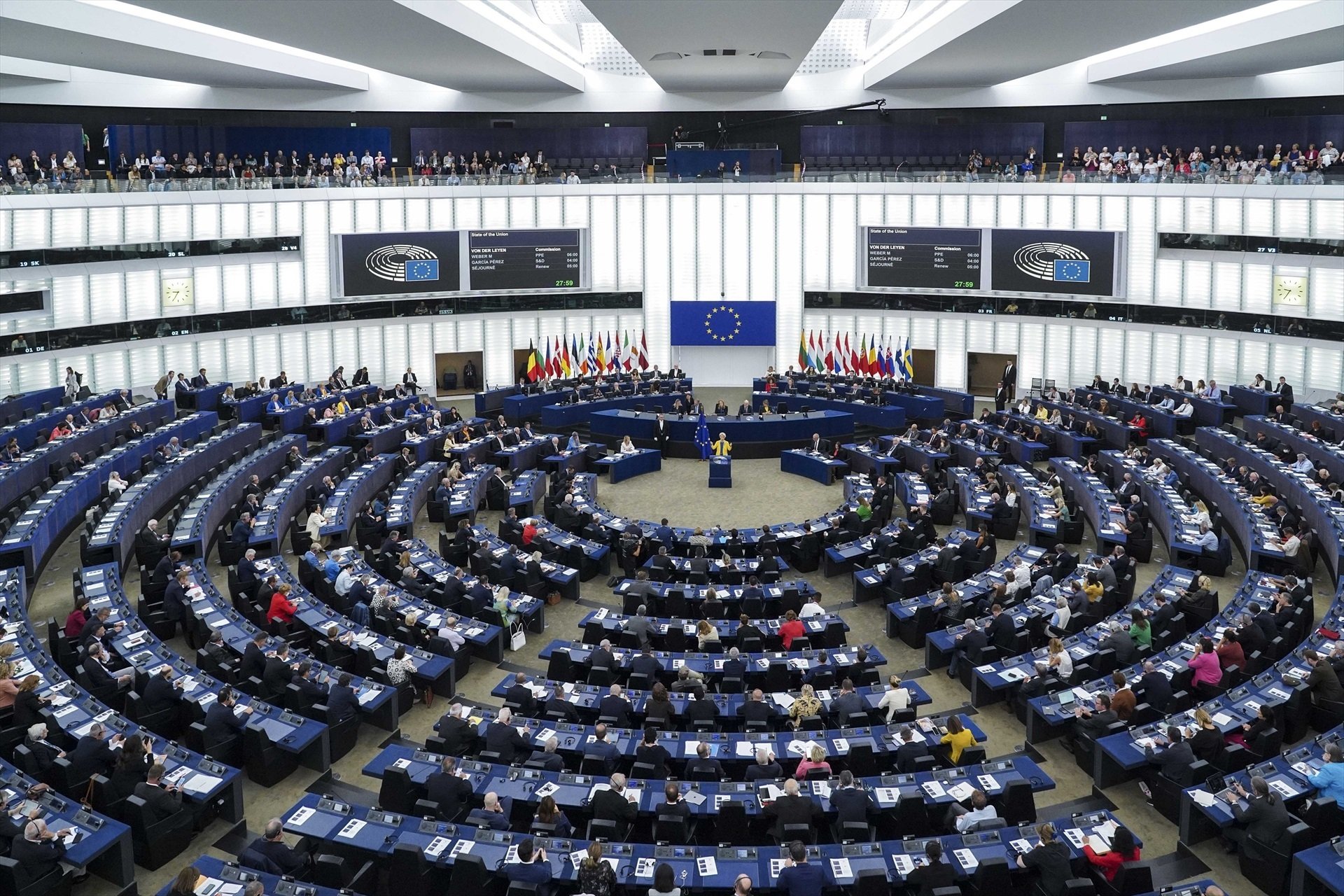The victims of Catalangate espionage have not been left without a voice at the European Parliament's hearing on the use of Pegasus spyware. Two European parliamentary groups, the Greens-EFA and the Left, promoted a parallel event this Tuesday at noon in which key members of the Catalan independence movement, who were among those spied on in the European continent's largest cyberespionage attack, were able to take part. All this, after a monographic session this morning focusing on Pegasus use in Spain was held, chaired by MEP Jeroen Lanaers. The desire of the affected party was to enable the participation of a broad representation of the dozens hacked in Catalan pro-independence circles, as well as a delegation of members of the Catalan Parliament. In the end, however, the cynical veto maintained by the Socialist and People's Party groups allowed only the lawyer Andreu Van den Eynde to be there representing all of the Catalan victims.
Nevertheless, the insistence and solidarity of the Greens and the European Left allowed some of the victims to speak in the European Parliament for an hour. The protagonists of this parallel session were the Òmnium Cultural lawyer, Elena Jiménez; the ex-president of the Catalan National Assembly, Elisenda Paluzie; deputy for the CUP party, Carles Riera; the ERC deputy and Barcelona mayoral candidate, Ernest Maragall; and Junts MEP Toni Comín. All five, representing the main Catalan pro-independence parties and civil society bodies, were scathing in their attacks on the Spanish state and its role in Catalangate.
All of them sought to denounce that, despite the fact that Spain's National Intelligence Centre (CNI) has admitted to having received judicial authorization to spy on 18 people, there are still 47 cases whose motivation is unknown. "What crime are we being accused of?" asked Jiménez. "Are we being accused of terrorism? Do the activities we practice look like terrorism?" Paluzie asked on what the state had based its decision to spy on independence, while Comín pointed out that there are still many doubts surrounding the facts. "When, why and who. These are the three questions that we who have been spied on ask. What are the justifications for spying on us without a judicial resolution?"
They did not stop there, and expressed their full confidence that the European Union will allow responses to be given to all these questions that the Spanish government has not answered . In this regard, Comín pointed out that for Spanish prime minister Pedro Sánchez, CatalanGate has been "free" of cost, in a warning also to the pro-independence parties. Maragall affirmed that the victims are "aware" of the efforts made by the Spanish state to deny the facts, hide the information and avoid any debate. "Today we confirmed this", he said, regarding the absence of Spanish representatives at the morning event on Pegasus in the country. "Silence is in itself a confession." And Riera warned that the state has decided to "apply the criminal law of the enemy" against independence, while the Spanish "shortcomings and limitations" in the framework of democracy only "reinforce" Catalan society's aspirations.
"It is crucial to give a voice to more than one victim"
It was Belgian MEP Saskia Bricmont, of the Greens, whose initiative led to the participation of the victims. Before the session, she was strongly critical of the attitude of the two European groups in which Spain's PSOE and PP are key members - that is the Socialists and Democrats, and the EPP. "We were surprised that the main political groups thought it unnecessary to listen to the victims", she lamented, adding that lawyer Van den Eynde was the only representative of those targeted by the espionage at the event on the use of Pegasus in Spain, after the major European political groups voted. Faced with this offensive by the two main Spanish parties, two other groups, those of the Greens and the Left, asserted that it was "crucial to give a voice to more than one victim". Bricmont also denounced the lack of support given to the victims, the lack of transparency and the silence of the director of Spain's CNI, who refused to say anything on the grounds that she is only able to report the use of Pegasus to Spain's official secrets committee. The German MEP of the Left, Cornelia Ernst, joined the criticism by issuing a warning after the state rejected a European mission to visit to investigate Spain's use of the spyware programme. "The Spanish government was not willing to meet us," she said.

